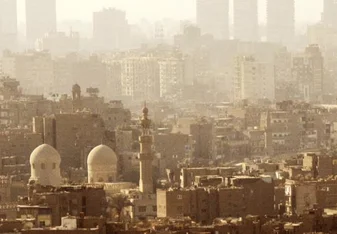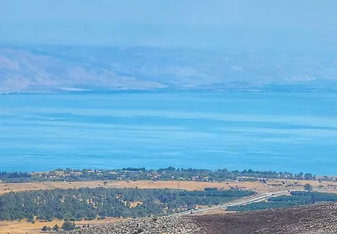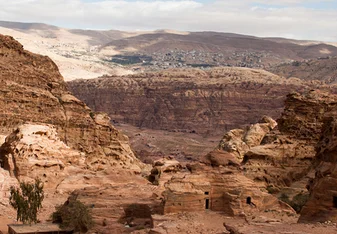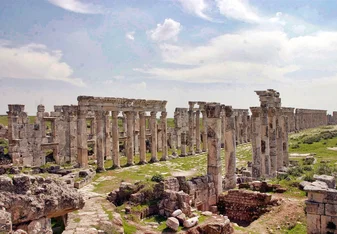Volunteer in the United Arab Emirates
Volunteer Programs in the United Arab Emirates
About
When you think of the United Arab Emirates, volunteering is probably not the first thing that springs to mind. The most common mental image people have of the U.A.E. is of Dubail, and the most common mental image Dubai is undoubtedly the Burj Khalifa piercing the clouds, or possibly even of a cheetah hanging out of the back of a Ferrari. (Yes, it happens!)
It may surprise you that the Government of the United Arab Emirates (UAE) actually declared 2017 as a nationwide Year of Giving, with a specific focus on volunteering. Zakat -- best translated as 'giving' -- is one of the five pillars of Islam, and this can be carried out through the doing of good for others. In 2018, this attitude continues, with strong support throughout the Arab country for volunteer work.
If you are thinking of volunteering in Dubai or elsewhere in the U.A.E., there are lots of opportunities for you to make a real difference, all whilst experiencing a vibrant and dynamic culture. Like many activities in the U.A.E., however, volunteering is regulated. It is wise to do some research before deciding to head to the desert.
Project Types
All official charities in Dubai (and elsewhere) must be registered with the U.A.E. government. Since fund-raising -- a common charitable activity -- is not allowed without permission, the government ensures that the activities being undertaken are legitimate. It also ensures that volunteers who are coming into contact with minors are fit and proper people.
However, don't let this discourage you. There are opportunities for both U.A.E. residents and visitors to volunteer for official charities, which provide many different volunteering programs. Most opportunities are on an as-needed, short-term basis, rather than longer-term programs.
Working with People with Special Needs
The UAE government strongly supports social enterprises that provide opportunities for those with special needs. Manzil, an organization that offers social inclusion programs for youth with special needs, allows volunteers to help out in a huge range of areas -- including planning events, horse riding therapy sessions, and arts and crafts and cooking lessons. Located in Sharjah, it’s just a few minutes from Dubai, if that's where you base yourself when volunteering in the U.A.E. Al Noor, a center for children with special needs, is also based in Dubai and offers volunteers bus transportation to its campus, where they can offer support in many aspects of student life.
Education, Outreach & Learning
Dubai Cares, the leading education and learning volunteer organization in Dubai, aims to ensure inclusive and quality education for all. It does this through many different activities, and one of the most popular is its annual drive to create care packages for Syrian Refugees. This year, over 2,000 people will come together during Ramadan to create 50,000 school kits for students. The Dubai Cares websites provide both visitors and residents the opportunity to become a part of any upcoming projects.
Healthcare & Support Opportunities
A branch of the international Red Cross and Red Crescent associations, the Emirates Red Crescent provides the opportunity for qualified medical professionals -- and others involved in the care and medical sector -- to volunteer. They accept non-residents and have a huge number of roles you can apply for, including non-medical administration, education, and support positions.
Domestic Animal Volunteering
Formed in 1989, K9 Friends is the longest running dog shelter in the U.A.E. Unfortunately, Dubai and the U.A.E. as a whole has a massive problem with abandoned pets. K9 Friends works to care for and re-home abandoned dogs in the region. While they typically only require volunteers that can commit for six months or longer, they occasionally offer shorter-term opportunities for visitors who wish to help out.
The Month of Giving: Ramadan
Ramadan is a very special time in the U.A.E. As an Arabic country, Muslims do not eat between sunrise and sunset, when they break their fast with an Iftar (evening meal). Many Muslim workers from other countries flock to the U.A.E. as laborers, and during Ramadan, it is not uncommon for large, communal tents run by volunteers to provide free Iftar meals for workers. Takatof, a volunteer program set up by the Emirates Foundation, allows you to assist with the creation and distribution of these Iftar meals.
Planning Your Trip
Dubai is a very expensive city to visit -- and to volunteer or live in. Before you even consider what type of volunteer role you would like, you need to ensure you will be able to afford to live in Dubai while volunteering. While salaries are tax-free, taxes are applied to almost all goods and services in the city, including a 'Value Added Tax.'
In addition, some organizations will only let residents volunteer with them. It is recommended that you contact the organization you wish to volunteer for early and determine whether they will allow non-U.A.E. residents to work with them.
Housing & Accommodation
If you are coming to Dubai to volunteer for a short period of time, you would be best to look for cheap apartment-hotels or Airbnb accommodation. For comfortable, clean, and air-conditioned accommodation, you would be spending around 1000-1500AED ($272-$400) per week. Sharing accommodation is much cheaper, but often not available on a short-term basis. There is a strong ex-pat network in the U.A.E., and you may be able to lodge with someone from your home country for less.
When you get people from 50 different nationalities living together in one city, you end up with some pretty erratic driving styles. Driving in Dubai -- like much of the Middle East -- is somewhat chaotic, and can be quite daunting. The good news is that taxis are cheap and plentiful, and the Dubai metro and feeder bus network covers most major locations. To save money on transport, make sure to look for accommodation near a metro stop.
Language Requirements & Tips
Most people in Dubai and throughout the U.A.E. speak at least some English, and it is easy to get by in day-to-day life only speaking English. However, government volunteer organizations will likely be run by a mixture of Arabic and English-speaking people. While some opportunities will only be available to local Emirati people, others will be made available to anyone with Arabic language skills. It may also be useful to have Hindi language skills, given the large Indian ex-pat population in Dubai.
Packing Tips
Pack light, comfortable clothing that breathes -- no polyester or synthetic fabrics. Women should pack modest clothing. While it is perfectly acceptable to wear a bathing suit by the pool, walking around the city in your beachwear is not okay. You should do your best to cover your shoulders and knees in public. If you need to bring in medication, always carry a note from your doctor explaining the prescription.
Additional Tips
Most countries are able to access a 30- or 90-day visa-on-arrival upon entering the U.A.E., but if not, you can apply for an e-visa in advance. The Emirates website lists those countries that require you to apply in advance for a visa. To gain a residency visa, you must be in the paid local employment category or be sponsored by a spouse or family member. Do note that you will be fined if you stay longer than the period specified on your visa approval.
As a visitor, you can get a tourist SIM card from either DU or Etisalat, the two government-owned communications companies. These are around 100AED ($30) and last for 30 days, including data and minutes.
The cost of living, including groceries, is very high in Dubai and Abu Dhabi, the two largest cities in the U.A.E. You can help reduce your costs by cooking meals at home, or by ordering cheap local takeout options through Talabat, a local version of Uber Eats. Resist the urge to dine out at the many restaurants on offer -- a meal at a reasonable hotel will likely set you back at least 150AED ($40).
Health & Safety
Dubai is a very safe city within a very safe country. Unlike many other major cities worldwide, you are unlikely to come across any serious crime while volunteering in the U.A.E. However, there are a few things you should note before visiting.
Health
Healthcare in the U.A.E. is extremely expensive, but of a good standard. As a visitor, you must ensure you have travel insurance valid in the U.A.E. If you are a resident, you will have been required to show evidence of medical insurance to gain residency.
No vaccinations are required to visit Dubai, but you will be screened for TB, Hepatitis C, and HIV if you wish to become a resident. It is recommended that you have your Tetanus, Hepatitis A and B, and MMR vaccinations up to date when visiting.
It is not unusual for temperatures to reach 122 degrees Fahrenheit in the summer. In that heat, most people cannot be outside for more than a few minutes of time without feeling unwell. It is also important to note that, during Ramadan, it is a legal requirement that all people do not eat or drink in public -- even water! Most housing, public transportation and public facilities (including malls) have air conditioning.
Safety
While crime is not a major issue in the U.A.E., the same scams are prevalent here as in many major cities -- people trying to take you to a specific shop to make purchases, or pushing you into a white Lexus that costs twice as much as a normal cab. Be sensible and take similar precautions as you would in any other city. The good news is, most scams here will mostly end in minor annoyance, not any sort of danger.
You’ll also hear all sorts of horror stories about Dubai, but most of them are just that -- stories. However, it’s always sensible to get acquainted with some of the rules of being in the U.A.E. Public displays of affection are frowned upon, and you should dress modestly in public places. Don’t get drunk in public, and if you are a resident, you must hold a liquor license to consume alcohol in your own home.






















